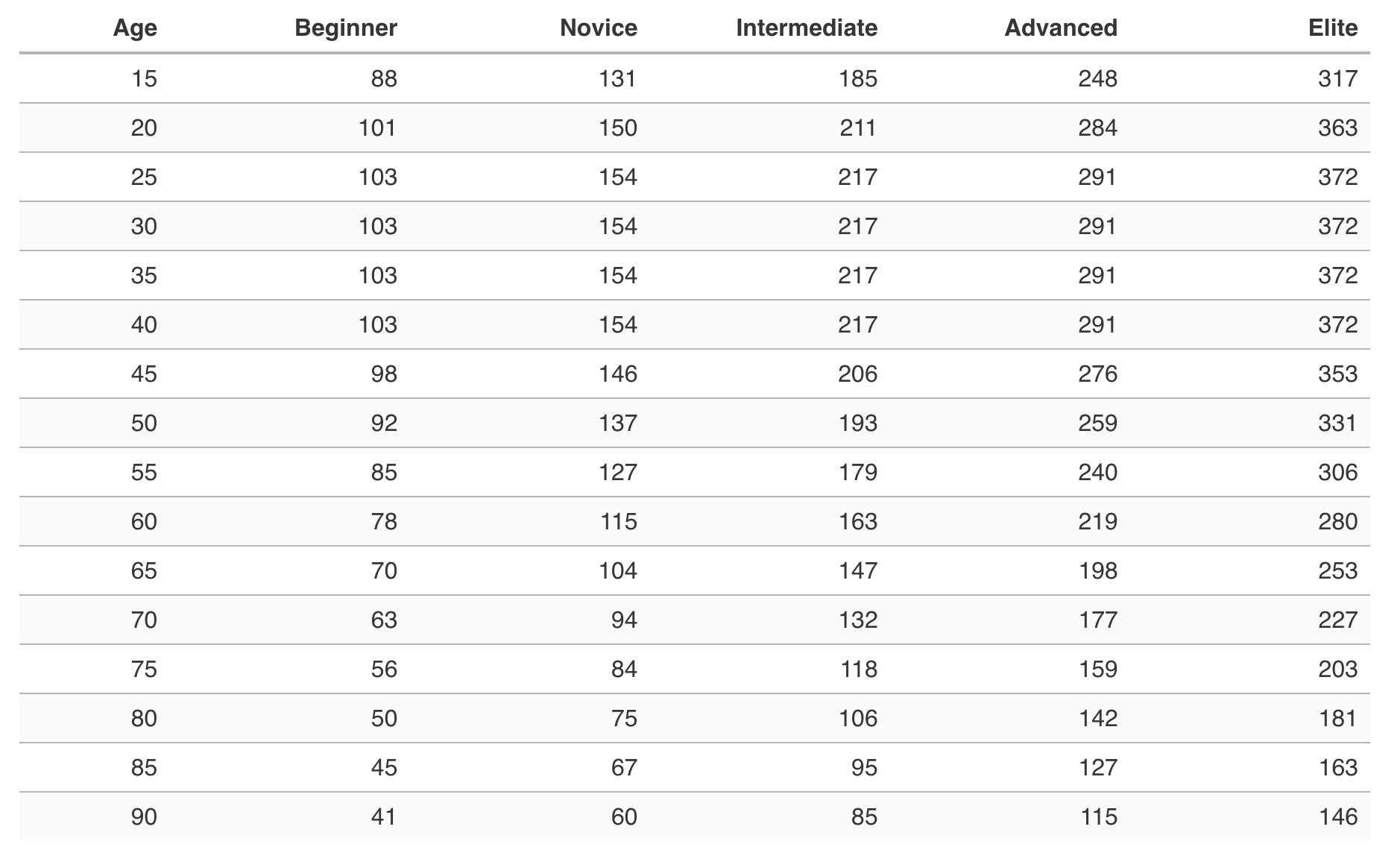The Average Bench Press by Bodyweight
Written by the Boostcamp staff
Are you where you should be on this strength-defining lift?
Whether you are first starting out in the gym or a seasoned veteran, the bench press is a go to exercise on the chest days or push days in just about any training routine, whether the goal is a strength sport like powerlifting or bodybuilding. It is simple, effective at building muscle mass and strength, and it really is a true testament to how strong of an individual you are. That being said, one of the biggest questions is “how much should I bench for my body weight?” Well, the Boostcamp team is here to answer that question.
Let’s break down exactly what goes into the bench press, what factors can help to increase it, and what the average bench press is by body weight.
The Average Bench Press By Bodyweight
There are many different factors that you have to take into consideration when trying to calculate your bench press by body weight. One of those things is skill level. For example, if you are just starting out in the gym, you more than likely will not be benching triple your body weight. Now, if you are at a higher skill level and have been working towards increasing your bench through proper training routines, utilizing accessory movements to strengthen weak points, and really training hard, then maybe a double your bodyweight bench press is feasible.
You also have to take into consideration your own personal training style. For example, if you are training for bodybuilding, you might be doing higher volume and intensity training, but not necessarily testing one rep maxes or even getting close to it. That being said, you may not have a strong bench press for your bodyweight. On the flip side, if you are training for powerlifting where you are doing heavy work and trying to peak with a crazy one rep max.
To really help you see what your bench press should look like by body weight, check out this graphic:

Image courtesy of Strength Level
How to Perform the Bench Press
Set Your Feet
Foot placement isn't as crucial on the bench as it is for other movements such as the deadlift or squat, but that does not mean you should not be concerned with foot placement at all. Your feet are the start of a strong base and are where you'll draw your power from on the bench press.
Aim to keep your feet back toward your glutes as far as possible, but keep them flat on the ground. Depending on your height, body type and flexibility, this is going to look a little different for everyone. The point, though, is to plant your feet firmly so you can generate power from the ground through your entire body.
Position Yourself Under The Bar
The position of your back on the bench is going to look unique to you based on your build and mechanics, but you should set up far enough under the bar that it's easy to unrack, but not too far to clip the pegs on the rack when you are going to re-rack. Contract your shoulder blades together to stay tight and protect your shoulders.
Arch Your Back
The arch on the bench press has been controversial, especially among bodybuilders, where many believe the arch to be for powerlifters who are in competition. No matter your beliefs, arching your lower back will actually help you maintain a neutral spine and keep your back tight and protected while you press.
Pros and Cons of the Bench Press
No matter what your body weight is, it is important to look at the pros and cons of the bench press, or any movement, before implementing it into your training routine.
Pros of the Barbell Bench Press
Increased upper body strength
Stimulates pectoral growth
Stronger bones
Cons of the Barbell Bench Press
Higher risk of injury compared to alternative chest exercises such as machines or dumbbell presses
Limited range of motion and a set bar path
How to Increase Your Bench Press by Body Weight
There is no specific formula to increase your bench press at each body weight. No matter if you are bulking or cutting or maingaining or whatever, the ways to increase the bench press remain the same no matter your body weight. Let’s take a look.
Strengthen Secondary Muscles
Keep in mind that the bench press is a compound movement and in order to improve it no matter your bodyweight, you should look at strengthening all of the muscles involved through accessory movements. Here are some muscles to look at improving:
Shoulders: Strengthening your shoulders, specifically the anterior deltoids (front shoulders) and shoulder joints, will help improve your barbell bench press. Movements such as front raises and presses will transfer over to improving your bench press, as they strengthen the front deltoids which are heavily recruited while bench pressing. Additionally, incorporating a specific bench press workout that targets secondary muscles such as the anterior deltoids, back strength, and lower arms can also greatly improve your bench press performance by engaging the muscles in your upper back and shoulder blades, allowing you to lift much weight with a slight arch in your lower back.
Triceps: The bench is a pushing movement, meaning that it recruits a lot of the triceps. That being said, strengthening your triceps and forearms is great for improving your bench press. It can help to overload the triceps and forearms with movements that will simulate the bench press. One exercise that is great for really packing on strength and size in the triceps and forearms is the close grip bench press, which is just like the barbell bench press but the hand placement is closer together, so it almost entirely removes the pectoral activation. You can also do exercises such as dips and close grip bench press can also be beneficial for tricep and forearm strength and should be incorporated into your training routine.
Pro Tip: Isolating the triceps will also help to strengthen the elbow joints, which are strained during the bench press.
Improve your Diet and Supplement Routine
Whether you are bulking or cutting, one surefire way to help increase your bench press at a certain body weight is through cleaning up your diet. Many people underestimate the power and importance of getting proper nutrition and its effects on improving your strength gains. Junk food and sweets are great on the taste buds, but in reality they do not do much for your gains, even if you are trying to dirty bulk, you will probably end up fat. If you want to improve your bench press for your body weight, focusing on getting in the proper nutrients to help your muscles grow and recover outside of your training sessions is key. Diet and supplementation are crucial for achieving strength gains, as they provide the necessary nutrients that a diet alone may not be able to provide.
There are supplements that are designed to help improve strength and add muscle mass. Here is a list of supplements that can help improve your bench press by bodyweight:
Creatine helps inflate the muscle and improve ATP production to get an extra rep or two in. For example, if you bench press 225lbs for 3 reps, once you start taking creatine you may be able to get it for 4 or 5 reps.
Protein powder helps to maintain proper protein intake, which is the most important macronutrient for building muscle.
Pre-workout helps with muscle pumps and energy for the gym.
Sleep and Recovery
Some crucial aspects for increasing your bench by bodyweight are the sleep and recovery protocols. You do not want to overtrain, as this can lead to injury. That being said, if you bench pressed on Monday, you do not want to do it again on Tuesday or even Wednesday, as the muscles need time to properly recover and repair, and in order for that to happen you need to be conscious of what you eat and how you sleep between sessions. Yes, you need to be mindful of how you sleep.
Sleep helps to generate testosterone and human growth hormone in the body, which are two of the most important hormones for building muscle mass. So be sure to get that much needed shut eye!
Follow a Program
One of the most surefire ways of improving your bench press by bodyweight is by following a program. A good lifting program will help you incorporate things like progressive overload as well as deload weeks, track your progress, and overall hold you accountable for what you do in the gym.
When looking for a program to increase your bench press by bodyweight, keep in mind that there are plenty of good programs available on Boostcamp to help you make progress. A good program will keep you on track, making sure that you are making the most gains and maximizing your time in the gym. If you are looking to stay on track and continue with linear progression, then finding a good workout program is the key. Where do you look for a good workout program? Check out the Boostcamp App for some great programs.
Boostcamp is home to over 50 FREE workout programs that consist of strength, hypertrophy, or functional fitness, or both, from the push pull legs program all the way to upper lower, there are so many programs to choose from that can help fit your needs, and each one is written by a renowned coach. However, with Boostcamp, you don’t have to just follow a pre-written program (although each program is written by a professional), you also can create your own program as well, with the Program Creator tool, and track your progress to make sure you are on the right track. That being said, when you are looking to incorporate some serious training to further your progress on your bench press by bodyweight, then check out Boostcamp.
Wrap Up
Overall, increasing your bench press at each body weight certainly is going to be a challenge. First, take into consideration your bench press at your current bodyweight, then set the goals on where you want to be, and then execute.
Be sure to follow Boostcamp on Instagram and subscribe on YouTube!


